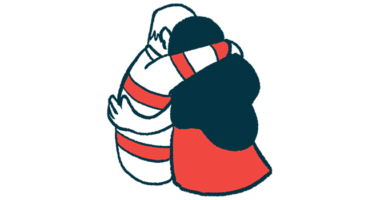How caregivers can play a role in interpreting medical information
My family's tips for understanding and executing doctors' advice

The past few weeks have been challenging for my extended family and me. My mother-in-law, who has familial amyloid polyneuropathy (FAP), experienced a health setback that required an extended hospital stay. Before this, she seemed to have achieved stability in her daily life, and improvements in her health were noticeable.
These types of setbacks can be emotionally challenging and physically demanding. In my family’s case, juggling the personal challenges of daily life with questions about how my mother-in-law’s condition would affect our approach to care proved difficult.
We addressed the situation by switching to learner mode. We wanted to stay informed regarding the setback and the treatments that were administered to ensure we were knowledgeable about time frames, our roles, other potential setbacks, and how we could provide the best support as caregivers. This meant we had to digest and act upon a lot of new information from my mother-in-law’s healthcare team, which demanded that we remain present and focused. That’s no small feat when we were burdened by concern.
The following are some of my family’s best practices for ensuring medical advice is understood thoroughly and acted upon effectively, even when we’re under stress.
Seek clarification promptly
When a setback occurs, caregivers shouldn’t hesitate to seek clarification about medical advice early. The moment something isn’t understood, clarifying questions should follow. This vigilance means going beyond a simple Google search, because your loved one may have unique needs. Asking questions directly to a healthcare practitioner through the health system portal or in person is key.
On a similar note, caregiver diligence may also mean not delaying when a patient feels that something is physically wrong, regardless of how insignificant the complaint sounds. A delayed response to a physical ailment may be due to the caregiver’s perception that the patient’s current condition is their baseline. It could also be the result of cognitive dissonance if the caregiver doesn’t believe that something is wrong.
Involve multiple people in healthcare talks
In uncertain situations, the patient may believe that they’ll struggle to interpret new information due to anxiety or their illness. This is a valid fear. So, during an extended hospital stay, caregivers may find it wise to stay with the patient to alleviate some of their anxiety about digesting information from medical professionals during rounds.
Although caregivers should help with interpretation, they shouldn’t completely take the reins unless it’s absolutely necessary. It’s essential to promote the patient’s independence by continuing to include them in these discussions.
Caregivers may also encourage patients to participate in their care in other ways, such as by managing medications or engaging in activities they can safely perform. This helps them maintain their self-esteem and sense of control.
Protect caregiver energy
The caregiver also must ensure their own anxiety or tiredness doesn’t impede their ability to support the patient. Health setbacks can be physically and emotionally draining for everyone involved, and an exhausted caregiver may have issues comprehending medical advice or lack the strength to advocate for the patient when needed.
Caregivers must remember to take breaks, practice self-care, and enlist the help of friends and family to prevent burnout.
Lean on the FAP community’s wisdom
There will come a time when the caregiver feels they’ve run out of ideas about how to care for their loved one, or when doctors feel stumped by an obstacle. In this case, support groups or online communities for FAP caregivers should not be overlooked.
These networks can provide valuable advice, a sense of belonging, and emotional support. Sharing experiences and learning from others who have faced similar challenges can be incredibly beneficial in gaining a deeper and broader understanding of new medical information. Other caregivers may also have fresh advice or tips from their loved one’s healthcare team that you can pass on to your own. Different teams have different strengths, so shared knowledge is a gift.
FAP caregivers must stay informed, maintain open communication, and provide emotional support. Being prepared to adapt to changing needs, seeking medical advice promptly, and encouraging independence are ways in which caregivers can remain sharp while effectively digesting and executing medical advice.
Note: FAP News Today is strictly a news and information website about the disease. It does not provide medical advice, diagnosis, or treatment. This content is not intended to be a substitute for professional medical advice, diagnosis, or treatment. Always seek the advice of your physician or other qualified health provider with any questions you may have regarding a medical condition. Never disregard professional medical advice or delay in seeking it because of something you have read on this website. The opinions expressed in this column are not those of FAP News Today or its parent company, Bionews, and are intended to spark discussion about issues pertaining to familial amyloid polyneuropathy.








Leave a comment
Fill in the required fields to post. Your email address will not be published.